Why Is It That In Some States You Can Buy Alcohol in a Pharmacy But Not in An Actual Liquor Store?
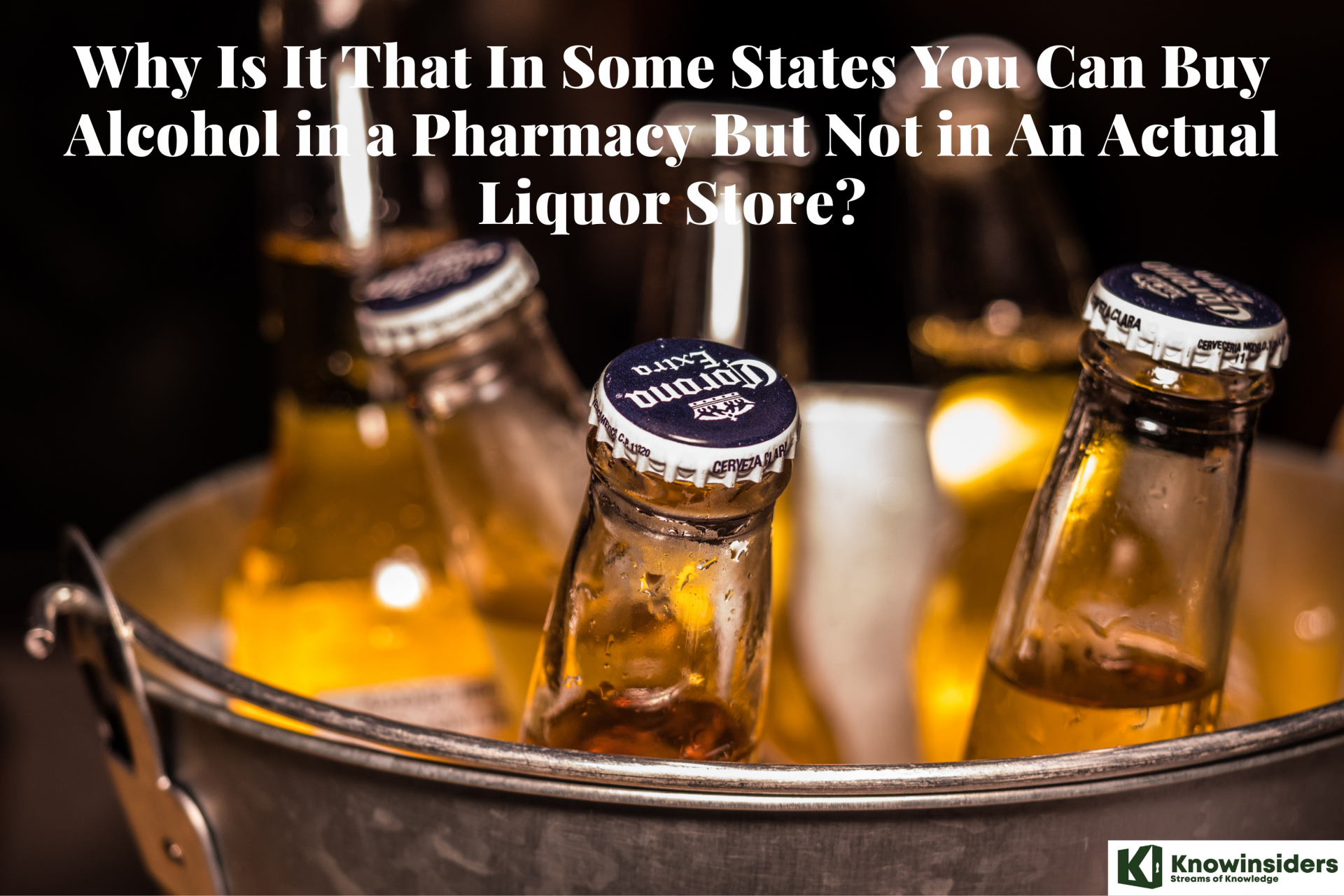 |
| Why Is It That In Some States You Can Buy Alcohol in a Pharmacy But Not in An Actual Liquor Store? |
| Table of Content |
America loves to drink. According to an April 2020 report from the National Institute on Alcohol Abuse and Alcoholism, Americans’ alcohol consumption reached 7.8 billion gallons in 2018. U.S. residents reportedly drank 6.3 billion gallons of beer, 900 million gallons of wine, and 570 million gallons of spirits. As a country, we drink an average of 2.35 gallons of alcohol per capita per year — which amounts to about 501 standard drinks annually.
As do many cultural habits, this varies by state and region: The West drinks by far the most booze of any region, coming in at 2.5 gallons per capita, while the South drinks the least, consuming a mere 2.23 gallons per person per year. The Northeast and Midwest drink 2.41 and 3.27 gallons per capita, respectively.
Wondering why you can't buy alcohol in the liquor store? Take a look at our article below!
How much Alcohol sales in the US?
The volume of the U.S. beverage market totals at 202 billion liters of liquid. Alcohol is responsible for 16.5% of total beverage volume. The alcoholic beverage market is over 80% attributed to malt beverages with wine and spirits products splitting the remaining 20%. Distilled spirits make up around 7% of the sales of alcoholic beverages. The largest sub-category of spirits is vodka with 34% of cases sold, followed by whiskey with 24% and miscellaneous specialty spirits at 12%. Wines make up around 11% of the alcoholic beverage market. 71% of the cases sold are domestically produced wines and 19% are imported wines. Champagnes and sparkling wines make up around 7% of the wine volume.
How is alcohol regulated by the law?
Prohibition ended in 1933 with the ratification of the 21st amendment.
Since that time, alcohol has been regulated by a combination of federal, state, and local laws. These laws regulate the manufacturing and the sale of alcohol, as well as the drinking age.
The 21st amendment is the primary federal law governing alcohol policies. It also gives individual states control over whether to allow the sale of alcohol in the state at all.
It also regulates importing, distribution, and possession of alcohol within the state. Some states offer local governments control over alcohol policy development and enforcement. Other states control alcohol policy at the state government level.
Unfortunately, the confusing state of affairs as it relates to alcohol policy is the drawback of giving states and local governments control over alcohol policy.
However, even with the flexibility of some laws at the state level, Congress maintains the power over certain alcohol policies, such as the minimum legal drinking age.
Why Is It That In Some States You Can Buy Alcohol in a Pharmacy But Not in An Actual Liquor Store?
Liquor laws are up to each state. In many states, the State itself owns the liquor stores. Beer and wine in pharmacies and grocery stores is a move to privatize the sale of liquor.
In some states, you can only buy 3.2% beer in grocery stores while the liquor stores have 5% and up. In some states, they can’t sell beer with an ABV of over a specific percentage. So no Belgian Ales in those states.
The INTENT was initially to prevent large chains of liquor companies to move into their state.
They believed that if you can’t sell beer (which is the number one seller in most liquor stores) then they will avoid that state and move on to more profitable states with beer sales.
Many states, like Kansas, simply enacted a law in 1947 (when they finally repealed prohibition) that, in order to get a liquor license, said you must have a residence for so many years AND that you could only own 1 store. This stopped the chains, like Birbiglia in Kansas City and Brown Derby in Springfield from even considering Kansas.
A few years ago they finally allowed you to own one additional store in your spouse’s name. This started the humorous rumor that the state allowed this so that it was easier to split two stores in case of divorce.
Incidentally, effective April 1st of this year Kansas now allows grocery stores and convenience stores to also carry full-strength beer, as opposed to 3.2% beer (actually by statute it was called “Cereal Malt Beverage”.
Which states have state-owned liquor stores?
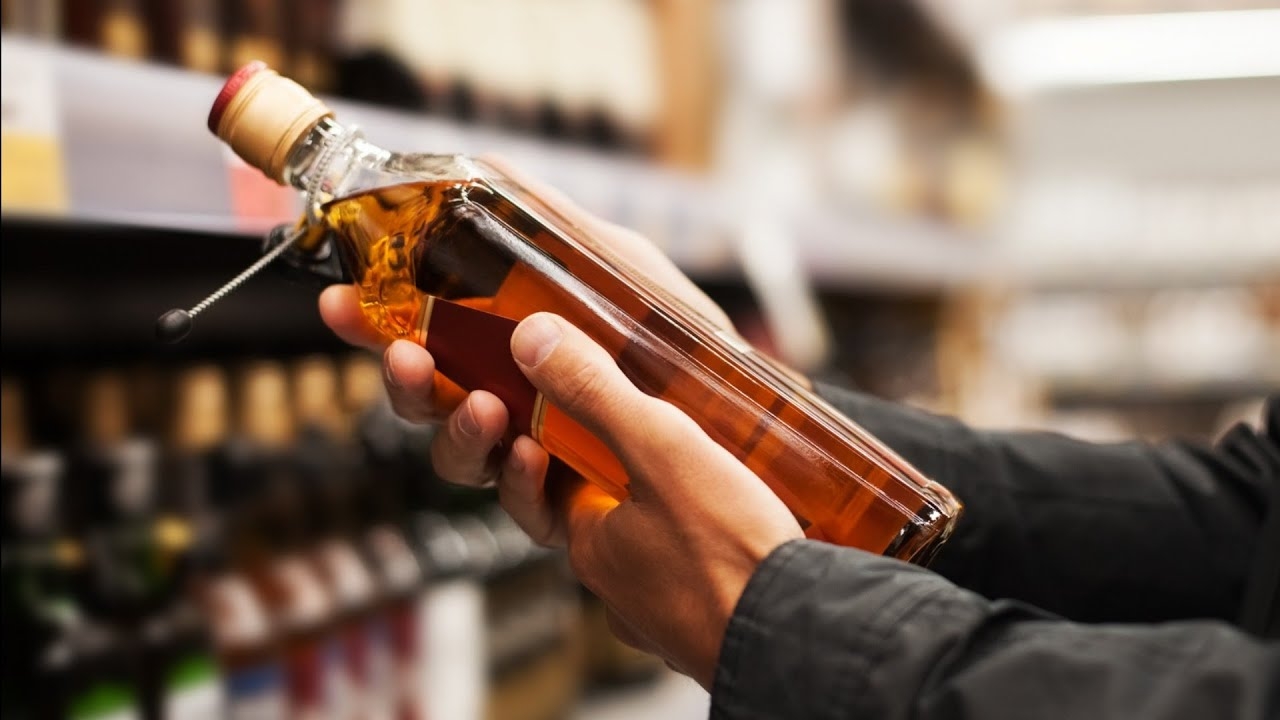 |
| Photo: thegrocerystoreguy |
In some states, the state has complete ownership and control over liquor stores.
This means that the stores generate income for the state. This money can be put towards education, infrastructure, or any other government needs. States also offer standardized training for liquor store owners and can restrict the number of liquor stores across the state.
Considering how many extra dollars are generated for the state, it’s interesting that there aren’t more states doing this. The states that currently have state-owned liquor stores are:
- Alabama
- Idaho
- New Hampshire
- North Carolina
- Pennsylvania
- Utah
- Virginia
State-owned liquor stores are typically closed on Sunday and voting day.
What States Allow Grocery Stores to Sell Liquor?
Many states allow you to buy beer in grocery stores. But some only allow you to buy wine. Some states will allow you to buy liquor on Sundays, but even some of those don’t let you buy it before noon.
For example, in Nebraska, you cannot purchase liquor until noon. But in Florida, there are no time restrictions on liquor sales, but you can only purchase liquor from liquor stores.
And other states limit the liquor licenses chain stores have so not all locations may actually sell liquor. It all gets very confusing and frustrating.
The states listed below allow sales of liquor in grocery stores:
- Arizona
- California
- Illinois
- Indiana
- Louisiana**
- Maine
- Massachusetts
- Michigan
- Missouri
- Nebraska
- Nevada
- New Mexico
- North Dakota
- South Dakota
- Washington
- West Virginia
- Wisconsin
- Wyoming
** Louisiana liquor sales are allowed in grocery stores. But, individual cities, towns, and villages may disallow it. Shreveport does not allow hard liquor sales in grocery and other non-liquor store outlets. Bossier city does allow hard liquor sales in grocery stores. Rural Caddo Parish allows it as well.
An Overview of Alcohol sales in the States of the US
Alcohol is prohibited from being sold in grocery stores in Pennsylvania, Delaware, and Alaska. Maryland laws vary widely from county to county. Consult this county by county list to get the complete breakdown of laws.
Many states still prohibit the sale of alcohol on Sundays. Those that do allow sales on Sunday often can’t sell it until later in the day.
Check the state laws if you are planning on traveling to another state. It can be very frustrating if you are trying to buy alcohol, only to find out when you get to the register that you can’t purchase alcohol on Sunday.
Beer Only Sales
Utah, Colorado, Kansas, Oklahoma, and Minnesota allow only beer to be purchased at grocery stores.
However, grocery store sales are limited to beer with 4% ABV or lower. In Utah, beer over 4% ABV must be sold in state-run stores. Colorado, Kansas, Oklahoma, and Minnesota require that beer over 4% ABV be sold at liquor stores.
Of interest, Oklahoma requires that beer sold at liquor stores be sold at room temperature.
New Jersey is interesting. While they do not limit the ABV of beer, grocery chains are only allowed 2 liquor licenses for the entire state.
This means that only 2 locations for each chain can sell beer in their stores. As a result, most grocery stores do not sell alcohol. Additionally, many establishments have a BYOB policy.
Liquor licenses are so expensive in New Jersey that they actually allow patrons to bring their own beer and wine for consumption.
Tennessee, Kentucky, Alabama, Mississippi, New York, and Connecticut all allow beer to be sold in grocery stores. However, there are some things you need to be mindful of:
Kentucky is said to have some of the most confusing liquor laws in the country.
Beer and Wine Sales
Southeastern states, along with Texas, Oregon, Indiana, Montana, Ohio, Vermont, and New Hampshire allow beer and wine sales in grocery stores.
Note: 40oz bottles of beer or malt liquor are not sold in Florida. The maximum available size is 32oz.
New Hampshire homebrewers take note: New Hampshire limits household beer or wine production to 100 gallons per year if you’re doing it by yourself (200 gallons if someone else helps).
Fun fact: As the flagship home of prohibition, Westerville, Ohio was once known as the “Dry Capital of the World.” During a period known as the Ohio Whiskey Wars, a businessman named Henry Corbin owned a saloon and sold alcohol despite local laws banning it.
The building was blown up in protest by residents multiple times.
What States Drink the Most Alcohol in America?
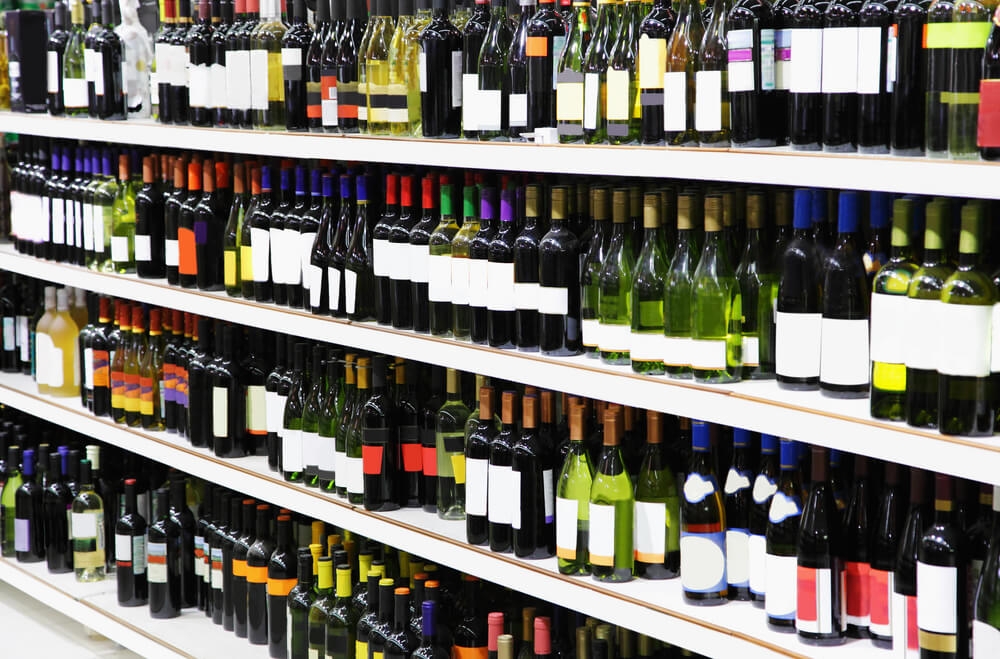 |
| Photo: firstquarterfinance |
The States That Drink The Most Alcohol Per Capita
When it comes to the states that drink the most booze per capita, the tiny state of New Hampshire looms largest. The Northeastern state comes in first for both beer and spirit consumption, likely due to its negligible booze tax. Utah drinks the least booze — an unsurprising fact, as the state has the strictest booze laws in America.
The States That Drink The Most Alcohol in Ethanol
The highly populated states of California, Texas, Florida, and New York led this category. Residents of Wyoming, South Dakota, Vermont, and Alaska, on the other hand, stayed relatively clear of the hard stuff.
| Rank | State | Gallons of Ethanol Per Capita |
|---|---|---|
| 1 | New Hampshire | 4.67 |
| 2 | Washington, D.C. | 3.77 |
| 3 | Delaware | 3.52 |
| 4 | Nevada | 3.42 |
| 5 | North Dakota | 3.16 |
| 6 | Montana | 3.10 |
| 7 | Vermont | 3.06 |
| 8 | Idaho | 2.94 |
| 9 | Wisconsin | 2.93 |
| 10 | Colorado | 2.88 |
| 11 | Alaska | 2.85 |
| 11 | Maine | 2.85 |
| 13 | Minnesota | 2.79 |
| 14 | Wyoming | 2.78 |
| 15 | Oregon | 2.74 |
| 16 | Hawaii | 2.66 |
| 17 | Rhode Island | 2.63 |
| 18 | Florida | 2.61 |
| 19 | Massachusetts | 2.55 |
| 19 | Louisiana | 2.55 |
| 21 | Missouri | 2.51 |
| 22 | California | 2.49 |
| 23 | Connecticut | 2.40 |
| 24 | Iowa | 2.39 |
| 24 | Illinois | 2.39 |
| 26 | South Dakota | 2.37 |
| 27 | New Jersey | 2.36 |
| 27 | Michigan | 2.36 |
| 29 | Pennsylvania | 2.34 |
| 30 | New Mexico | 2.26 |
| 30 | Texas | 2.26 |
| 32 | Arizona | 2.25 |
| 33 | Washington | 2.22 |
| 34 | New York | 2.21 |
| 35 | North Carolina | 2.17 |
| 35 | Mississippi | 2.17 |
| 37 | South Carolina | 2.16 |
| 37 | Nebraska | 2.16 |
| 39 | Indiana | 2.15 |
| 40 | Tennessee | 2.14 |
| 41 | Virginia | 2.13 |
| 42 | Maryland | 2.08 |
| 43 | Ohio | 2.03 |
| 44 | Alabama | 1.99 |
| 45 | Kentucky | 1.95 |
| 46 | Kansas | 1.92 |
| 47 | Georgia | 1.90 |
| 48 | Oklahoma | 1.85 |
| 49 | Arkansas | 1.78 |
| 50 | West Virginia | 1.74 |
| 51 | Utah | 1.35 |
What State Does Not Sell Alcohol?
There are three states that are strictly dry by default: Kansas, Mississippi, and Tennessee. In order to reach legality and be subject to state liquor control laws, counties must specifically authorize the sale of alcohol. A public referendum is specifically allowed in Alabama for municipalities and counties to go dry.
Can You Buy Alcohol At 18 Anywhere In The Us?
All states and most territories have a legal minimum drinking age of 21 (National Minimum Drinking Age Act), the legal details of drinking vary from state to state. There are only a few states that ban alcohol consumption completely for people under 18 years of age, but most of them allow some consumption under certain conditions.
Alcohol Laws by StateAll states prohibit providing alcohol to persons under 21, although states may have limited exceptions relating to lawful employment, religious activities, or consent by a parent, guardian, or spouse. Among states that have an exception related to such family member consent, that exception often is limited to specific locations (such as private locations, private residences, or in the parent or guardian’s home.) No state has an exception that permits anyone other than a family member to provide alcohol to a minor on private property. In addition, many states have laws that provide that “social hosts” are responsible for underage drinking events on property they own, lease, or otherwise control, whether or not the social host actually provides the alcohol. |
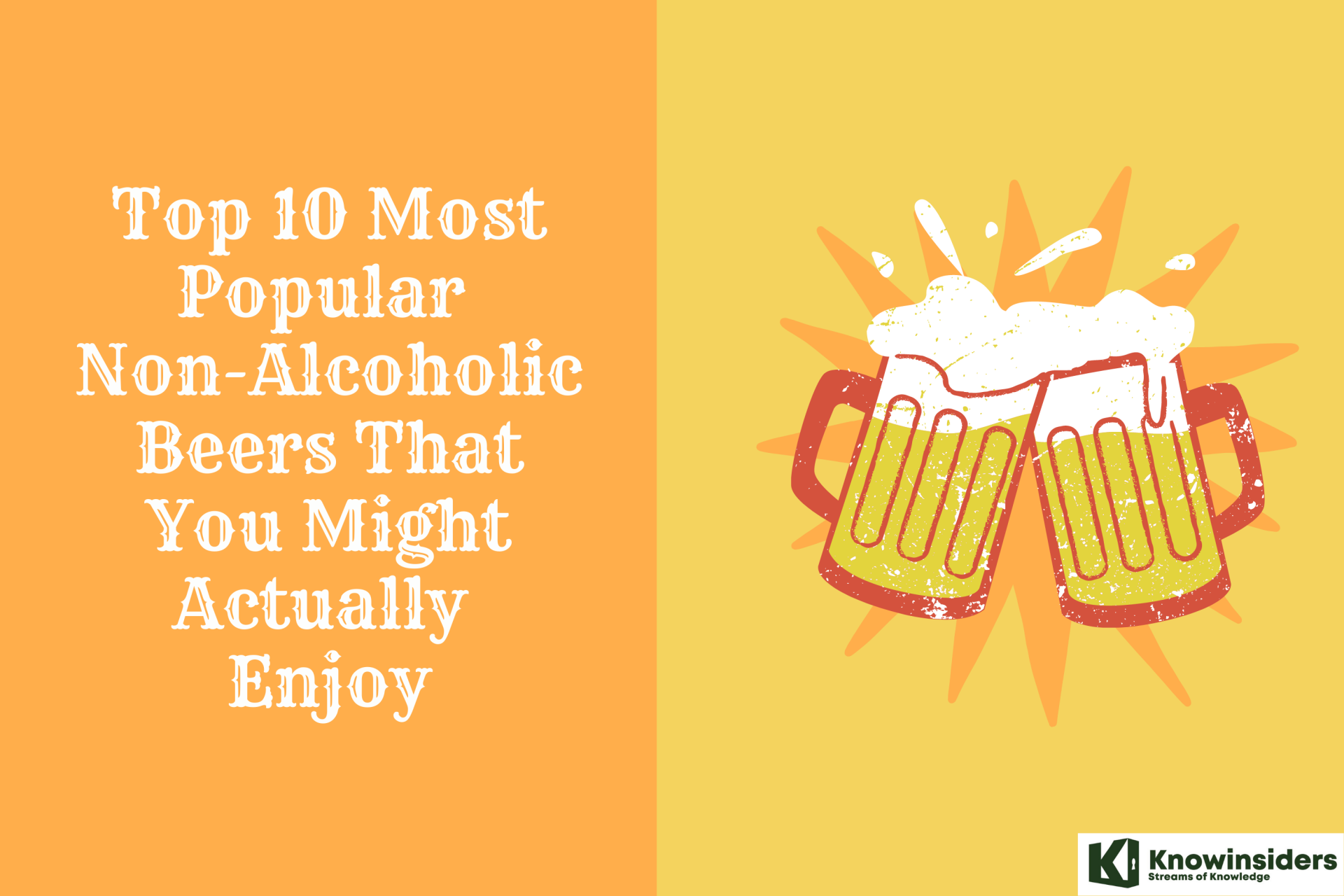 Top 10 Most Popular Non-Alcoholic Beers That You Might Actually Enjoy Top 10 Most Popular Non-Alcoholic Beers That You Might Actually Enjoy Today’s best Non-alcoholic (NA) offerings pack all the flavors found in traditional beer, with none of that next-day regret. Here are 10 of the most ... |
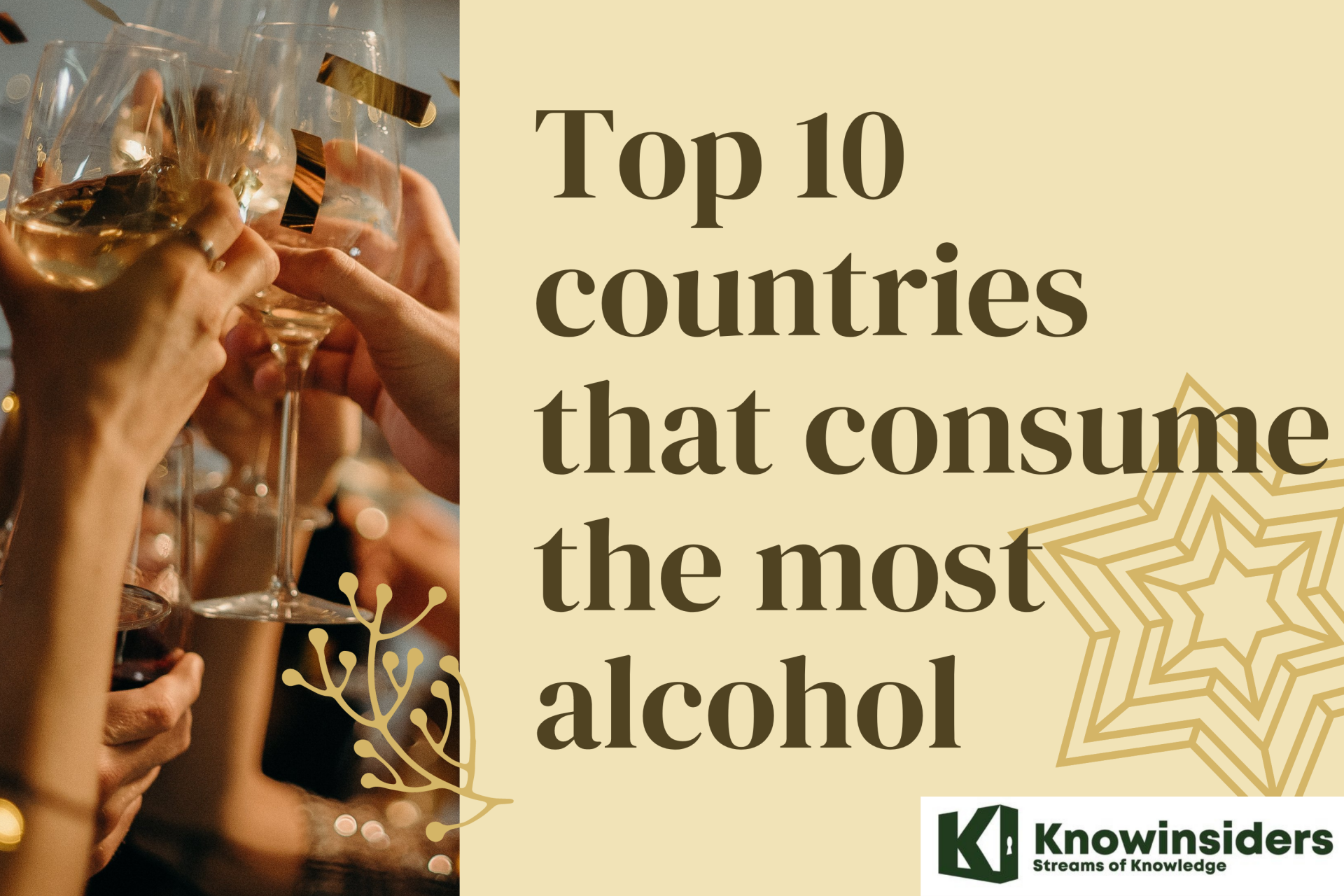 Which Countries Drink The Most Alcohol - Top 10 Which Countries Drink The Most Alcohol - Top 10 Which countries drink the most alcohol in the world? Scroll down to know the list of the top 10 countries with the highest per capita ... |
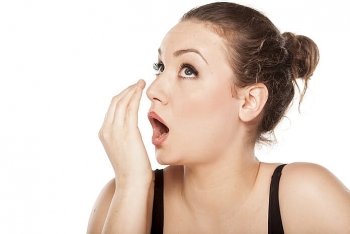 9 Easy and Quick Ways to Cure Alcohol Breath 9 Easy and Quick Ways to Cure Alcohol Breath Knowing how to get alcohol off your breath or what covers alcohol breath isn't easy. In fact, if you want to do more than ... |























